K’s roommate and best friend from college dropped by for a visit. Photos by K
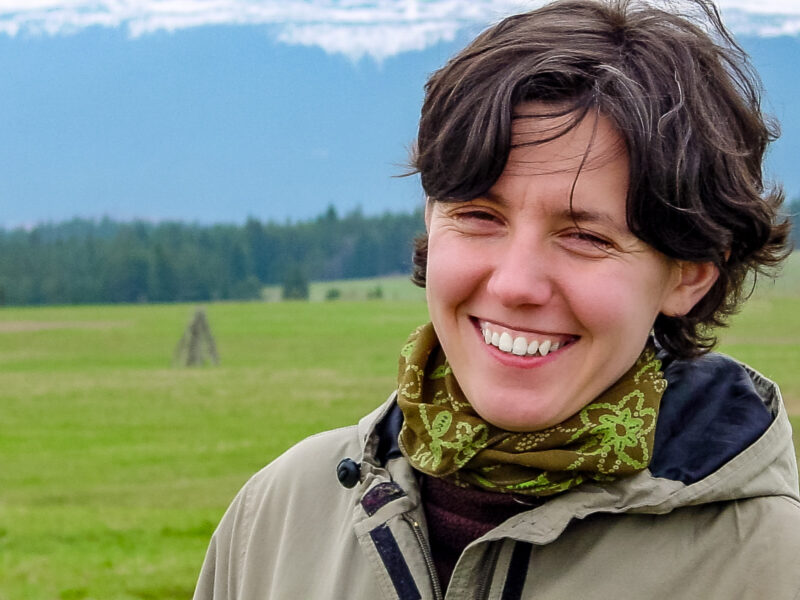

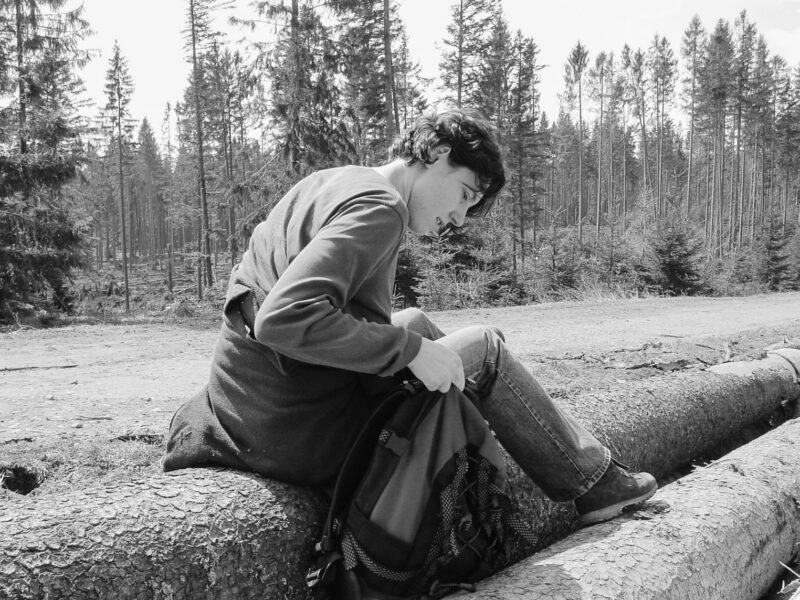
K’s roommate and best friend from college dropped by for a visit. Photos by K



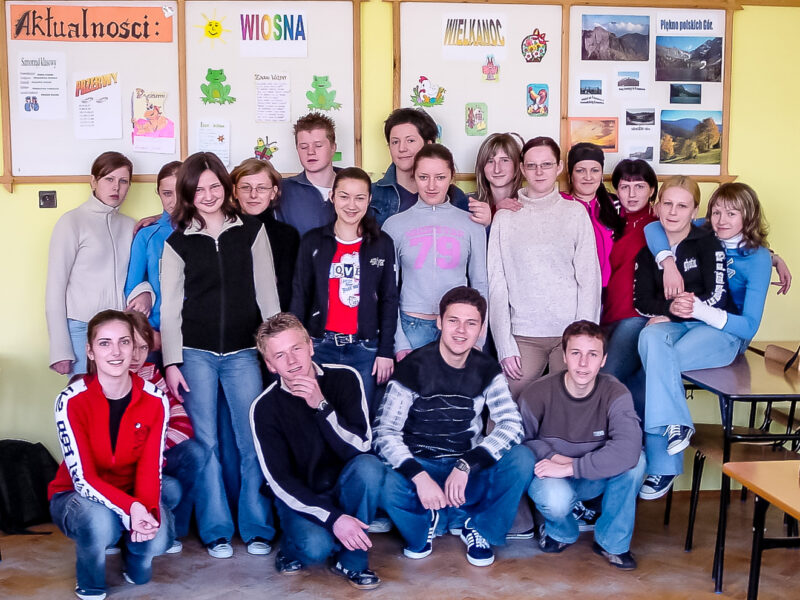
Not supposed to have favorites, but I’m not going to lie — this was one of my favorite classes.
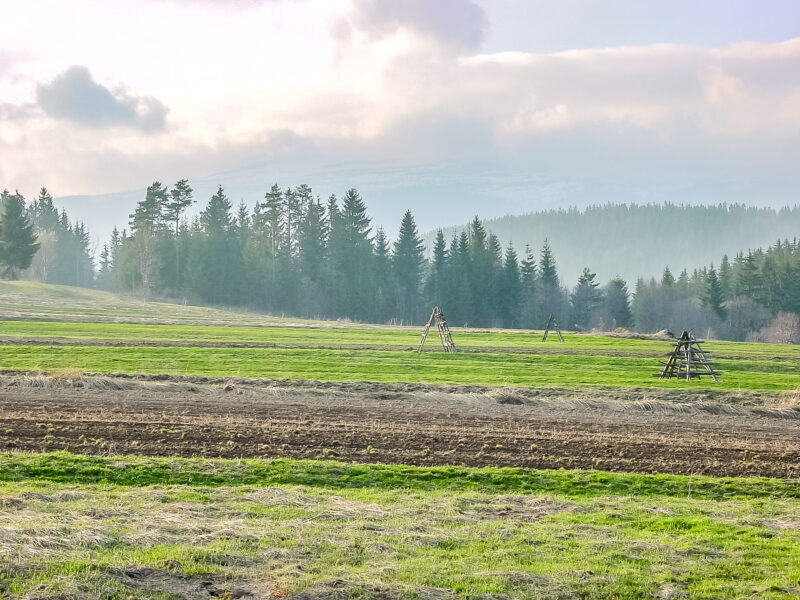
Here in Poland, the bane of high school students’ existence has just begun: the matura. This year is exceptional because it’s the first time in many years that the matura has been significantly revised.
The old matura was hell. The new matura — well, we’ll see.
This year the order is reversed: first the oral exams (in both Polish and a foreign language), then written exams (in Polish, a foreign language, and a third, student-chosen subject).
It is also, in my opinion, much easier. The foreign language exams, at least the basic level exam (there’s also a possibility to take an “extended” exam), depends more on students’ ability to communicate than on grammatical knowledge.
The English exam has four parts: three situations/dialogues, and a picture. The situations have three sub-points that students have to complete in order to get the full credit. Usually the situations are something like, “You are on vacation in England and you read an advertisement about excursions to Scotland. Call the given number and find out,” with the three sub-points being something like:
Pretty basic stuff, and most of the kids who’d put forth any effort whatsoever during the last three years will have no problem with it at all.
The picture is always of one or more people, doing some obvious, clear activity. Students have to describe the picture, than answer two questions about it.
Again, pretty basic stuff.
Still, a lot of the students are scared silly. Many of them have no cause to be frightened — they’ll pass despite their jitters. But a few have reason to be nervous.
I too am a little worried about it. It’s at least a partial reflection of my teaching ability. It shows, I think, students’ communicative skills (or lack thereof) much more so than my teaching, but still…
I’ve put some pictures of the croci in bloom here in southern Poland at our other, slowly dying website, kingary.net.

A couple have also been put on our Flickr account.

All images are enlarge-able, and hopefully more will be posted when I get back the pictures I took with my film camera.

It’s a beautiful time to be in Poland…
The end of the school year for seniors – today was the last time they’ll all be together, and as of this afternoon, they are officially graduates, with only the matura (exit exam) awaiting them. There was of course something like a graduation ceremony, complete with a series of skits and songs performed by juniors, as per tradition. Naturally, among the songs was that school classic, “Ale to już było / I nie wróci więcej”
(“But that has already been, and won’t return again”).
I sat there, facing the seniors, watching some of the girls get teary-eyed and sing along, and I couldn’t help but smile. I wasn’t happy because of their obvious sadness, but because of the privilege I was experiencing – to be that close to so many young people that are of no relation to me at all. I see their joys and troubles, and sometimes have to put up with their troubles jointly when they come pouting to class. When I’m extremely fortunate, I’m even part of the cause some of their joy; and unfortunately, I’m certainly the cause of their troubles too often. But young skin, hearts, and bones mend quickly, I tell myself.
I’ve taught these seniors for three years – their entire high school career. I’ve seen some of them go from being complete beginners to relatively eloquent English speakers.

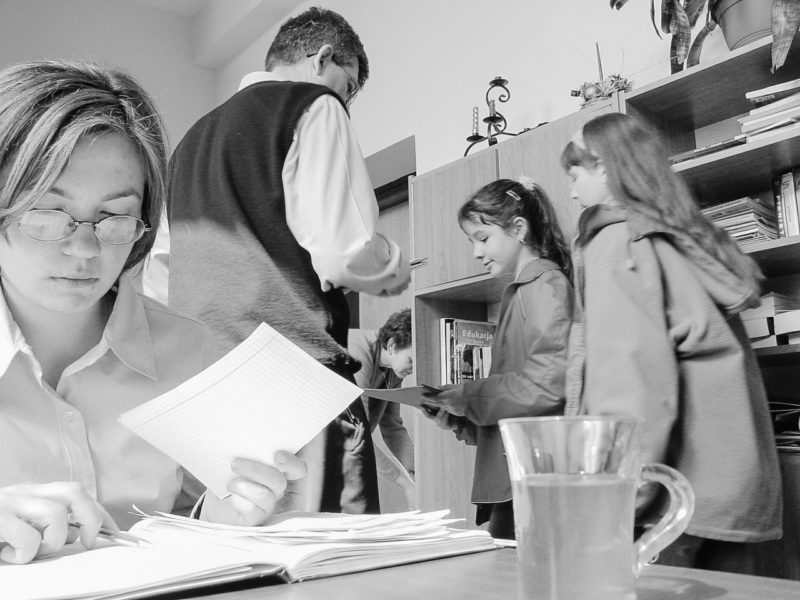
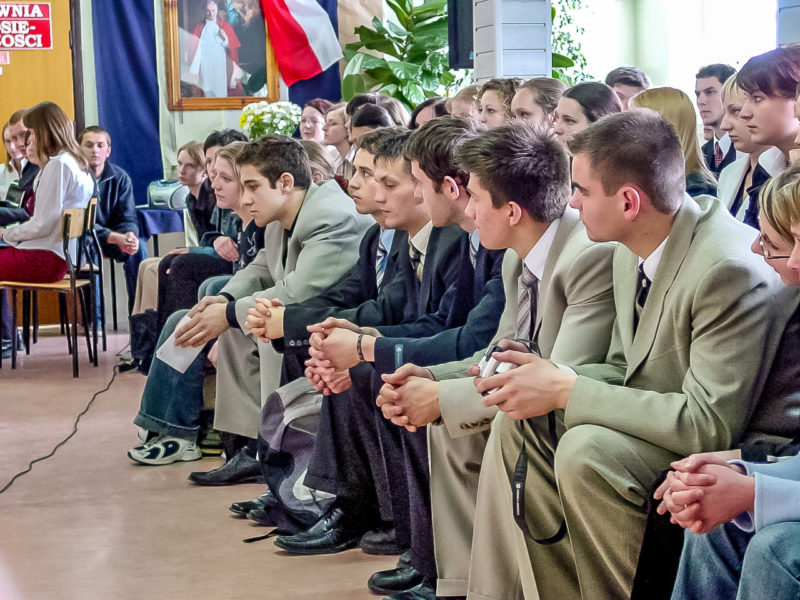
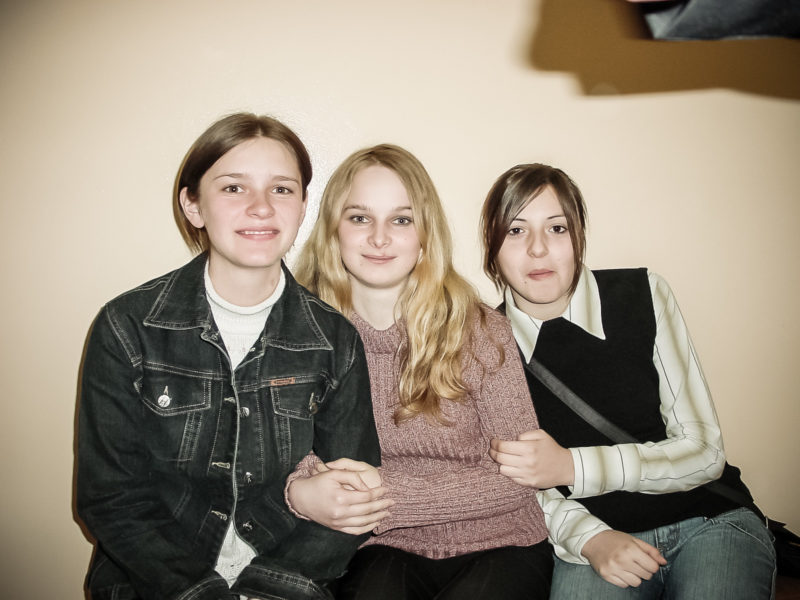
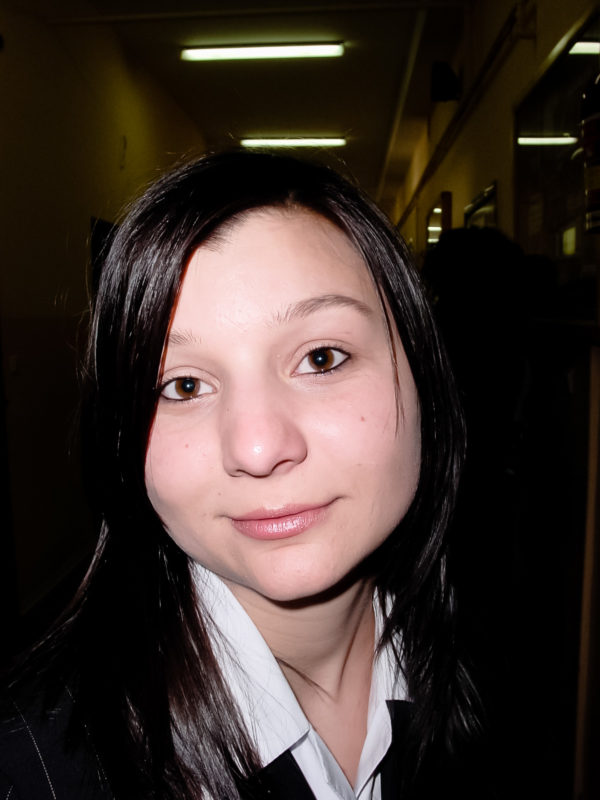
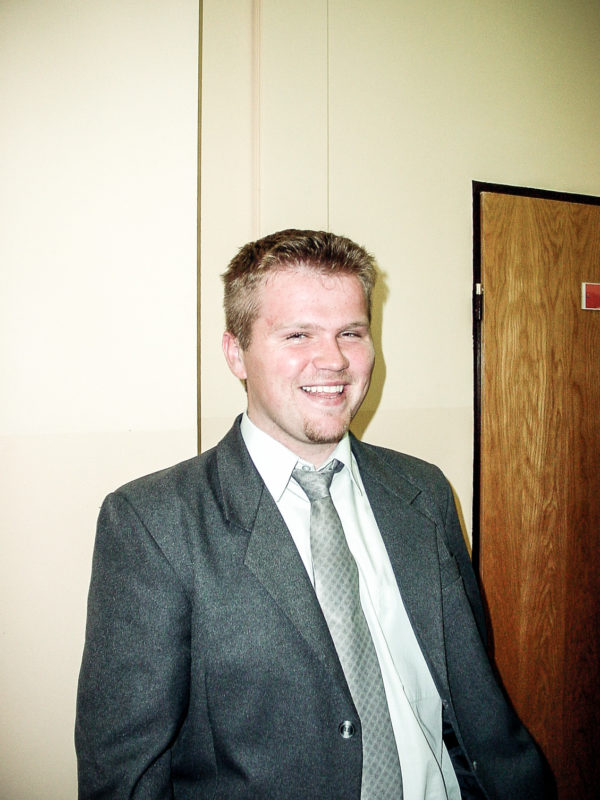
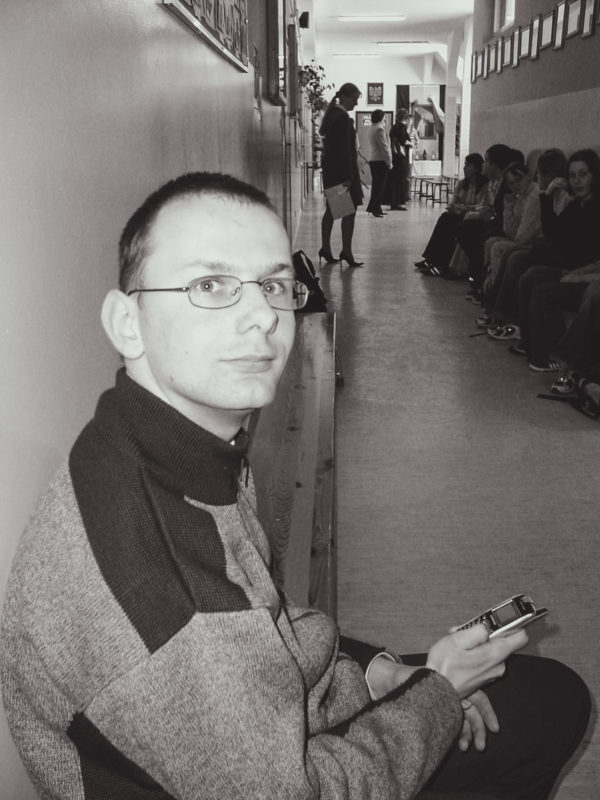
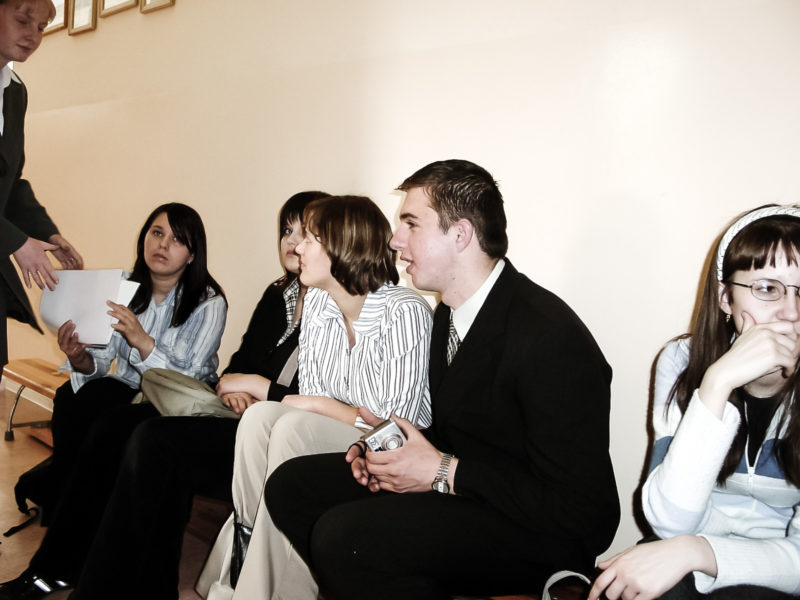
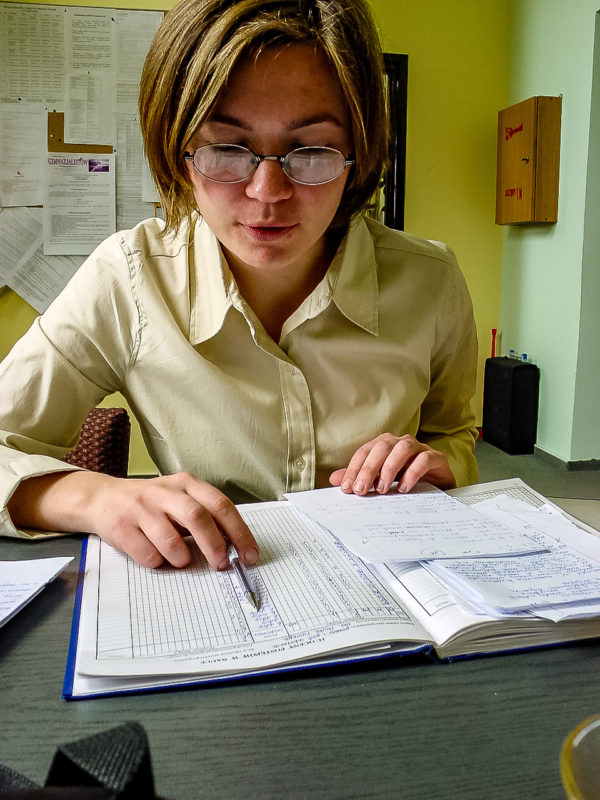
I’ve seen some of them come in and leave with the same level. Most have improved, as evidenced by letters that I had them write to themselves at the end of their first year in high school and then gave back this week. What a feeling, watching them read and hearing them laugh at their own silly mistakes, and what a sense of accomplishment for them that they can now see those mistakes.
But it’s not only been their English that has improved. Girls have become young ladies, in appearance and behavior. Little boys in teenagers’ bodies have become responsible young men. Nerdy outcasts have improved their social skills and have even become semi-popular. Boys learned how to comb their hair and became young men, and awkward young girls became attractive young women.
That’s the best thing about having taught in the same place for a while – you see the kids grow up. It’s like parenting, without as many of the worries.
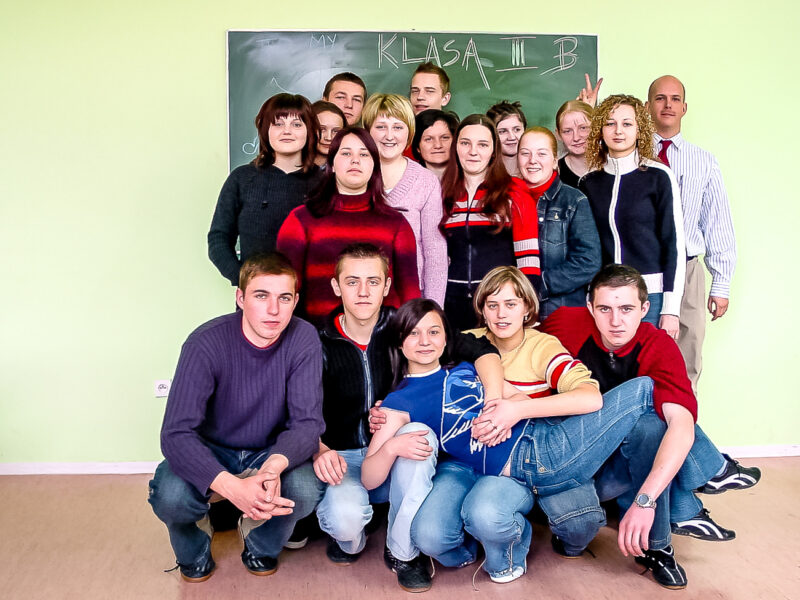
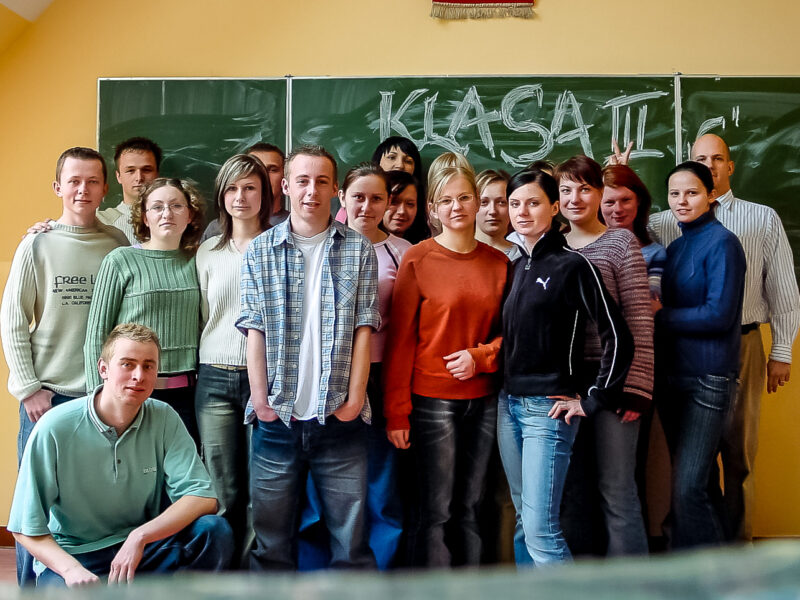
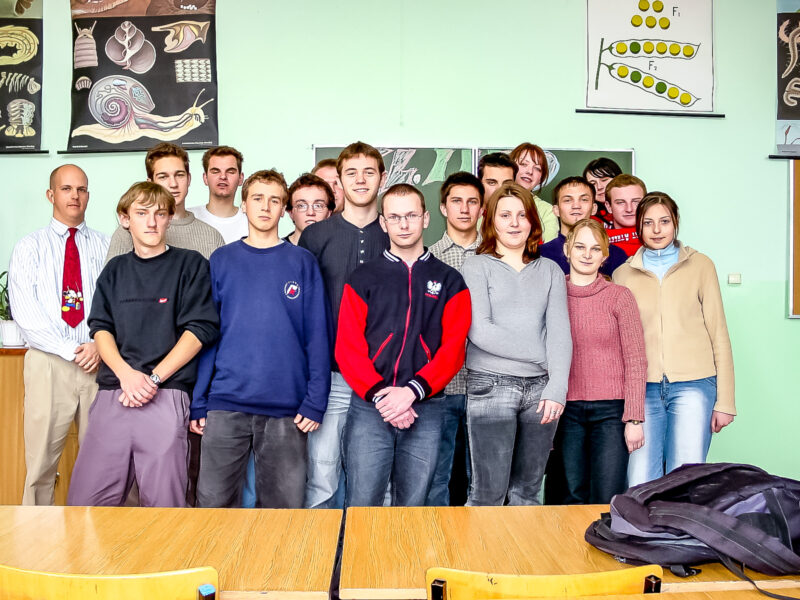
I recently got pulled over by the border guard. He asked me for my driver’s license and registration, and I duly handed over my American license and the international drivers permit I got a couple of years ago in the States.
“What is this?” the border guard asked.
“It’s an international driving permit,” I replied.
“Who issued it?” he asked.
“I got it in America.”
He thumbs through it, then asked, “Yes, but by what authority.”
“It was an agreement by the United Nations, in the late 40’s I believe. Participating countries agreed to recognize each others’ driving license.”
“Hold on.” He goes back to his truck, where another border officer is sitting. He comes back and tells me what I’d been expecting all along: “This is not valid. It doesn’t have a stamp from the United Nations or anything.”
If something in Poland does not have a stamp, it’s not valid. End of story.
The international driving permit has all this information explained…in English, French, German, Russian, Chinese, Arabic, and a handful of other languages, but no Polish. And this guy speaks no foreign languages.
What to do?
Kinga was sitting with me, and he suggested that she drive home, because I’m clearly driving illegally.
Which goes to show, that if the officer is ignorant and monolingual, “legal” is a completely relative term.
W zwiÄ…zku z otrzymaniem wezwania z dnia 31.03.2005 zwracam siÄ™ z proÅ›bÄ… o wyjaÅ›nienie nastÄ™pujÄ…cych wÄ…tpliwoÅ›ci dotyczÄ…cych wymaganego pełnomocnictwa:
Jestem cudzoziemcem i zawarty w wezwaniu wymóg przesłania pełnomocnictwa jest dla mnie niejasny. Również nikt z najbliższego otoczenia nie umiał wyjaÅ›nić mi specyfikacji owego pełnomocnictwa.
Niezrozumiałym dla mnie jest również fakt, że ponownie muszÄ™ potwierdzać miejsce mojego zameldowania w Polsce i po raz kolejny wypełniać formularze moich danych osobowych. Wszystkie wyżej wymienione dane posiada już UrzÄ…d Skarbowy w Nowym Targu oraz Małopolski UrzÄ…d Wojewódzki w Krakowie, Wydział Spraw Obywatelskich i Migracji, który to wydał mi kartÄ™ pobytu na terytorium RP.

A ride through the village yesterday afternoon revealed that almost all houses have a picture of John Paul II hanging in a window, often with a black ribbon across the lower right corner. School has been called off for Friday so students can watch the funeral. Students Tuesday began coming to school in suits and dresses. On Wednesday most of the students were wearing semi-formal wear. Meetings are being held every night in town squares.
In Lipnica, there’s a daily eight o’clock mass for the pope. It’s followed by “Apel Jasnogorski,” which a special meeting where participants sing the song sung every evening at nine at Czestochowa, home of the Black Madonna — the most revered holy object in Poland.
In nearby Nowy Targ, there are daily outdoor masses at the airport as well as nightly vigils in the rynek (town square).
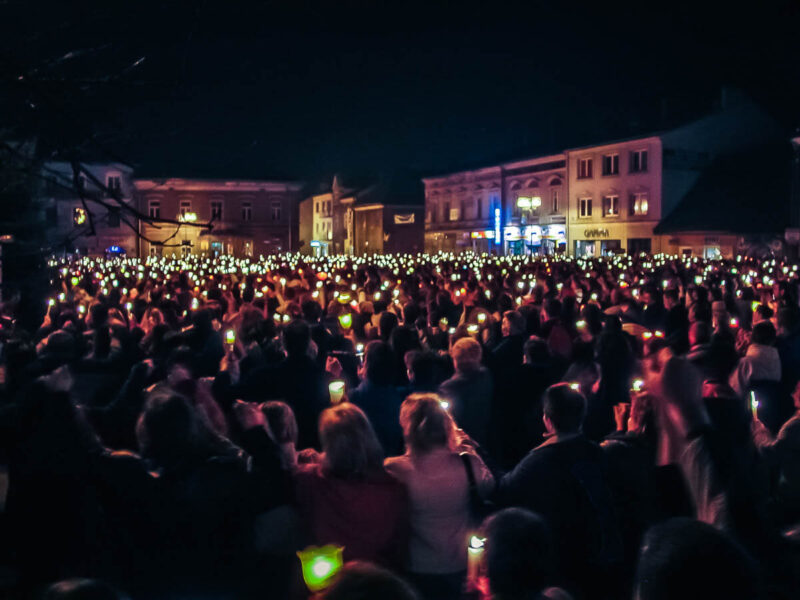
Crime and accident rates have fallen, police report. Rival soccer hooligans have been holding common masses. John Paul, even in death, is bringing out the best in everyone, even people waiting in line to see his body.
Police made a few exceptions. A Mexican family with two weeping teenagers and a small child was allowed to cross through the barricade and over the bridge to join the end of the line. Rather than protest, the crowd applauded (CBC)
And it’s not just the “little people” who are getting caught up in it.
Back at the Vatican, workers have set up hundreds of seats in St. Peter’s Square for the crowd of expected kings, queens, presidents, prime ministers and religious leaders – many of them political foes united in a funeral (Reuters)
I read yesterday that Bush is going to have to sit very close to Mohammad Khatami, the president of Iran — one third of his “axis of evil.” Perhaps that would do them good. Better would be for the two of them to have to wait in line together for twenty-four hours like the rest of the people did — perhaps in sub-zero weather, with one blanket.
Everyone is so sad now, as if they’ve literally lost their father. But what kind of respect are you showing that father if you don’t follow his example, if you don’t live up to his one single requirement (rather, expectation/hope) of everyone – respect each other? Poles go on and on about how John Paul will be “John Paul the Great,” only the third such pope to get that posthumous title, but so many of them don’t do what this great man said.
There’s so much corruption in Poland that it’s not even funny any more. The evening news could easily be turned into a game show: “Guess The Today’s Scandal!” Priests are rich, the poor are getting poorer, and the unemployment level is not improving. They build beautiful new churches, but there aren’t quality roads in the country, not to mention a complete lack of highways.
I sometimes wonder if Poland is so sad simply because they’ve lost a hero, not because they’ve lost a spiritual leader. Sure, some of them are truly saddened by the spiritual aspect of it, but judging from the number of people who actually follow JP2’s example, it’s a minority.
Since Sunday, most of the radio stations as well as television stations have been broadcasting commercial free. Radio stations have been playing mainly classical music, my wife tells me. I don’t know — I don’t listen much to the radio, so…
Poland produces a revolution every five hundred years, and it’s always the same revolution: a man comes along and challenges the way we all look at the universe, challenges us to stop thinking we’re the center of the universe and that all things circle around us.
Copernicus was the first, at least in the western world, to suggest that the Earth was not the center of the universe. He dethroned the heady notion that literally everything revolved around us, and modern science has pushed us to the point of virtual cosmic insignificance.
Karol Wojtyła, with his famous words, “Do not be afraid,” challenged us to stop thinking of ourselves as the center of our own worlds. Love is the greatest of all these, said Saint Paul, and John Paul, in his insistence on the universal recognition of human dignity and freedom, showed how to put that into practice.
“Nie lękajcie się!”
Don’t be afraid.
Fear not.
How can we not fear? Look at the world, and the injustice that hounds it, and it seems the only thing we can do is be afraid. How can that possibly work? Perhaps when we start following John Paul’s example and love others more than ourselves, we will stop fear. After all, what is fear? It’s fear of what will happen to me. When I start loving others more, I stop thinking of my self so much, and I stop fearing.
John Paul in that sense was a Copernicus for the soul.
We were in Adam’s bar with Johnny, Kucek, and Marta. I was playing chess with Rafał, and I heard Mozart’s Requiem and though I didn’t consciously think it, I knew what had happened. After a few moments, Kinga called my name (they were sitting behind me) and told me. I turned to Rafał and told him, then suggested we put the chess away.
I went back to the table where everyone else was sitting, and we just sat there quietly for about ten minutes. No one was saying a word. I can’t remember who initiated it, but someone said, “Idziemy?” and we all got up and left the table covered with full beer glasses and extinguished, half-smoked cigarettes.
Without saying, we all began walking up to the church. No one said, “Let’s go to the church,” we all just headed there. As we were walking, the fire station’s siren began wailing. It was strangely and peacefully quiet other than that.
We got to the church and it was locked. It had been open all day, and the night before, for prayers, but it was closed. “They’ll come open it,” I told everyone confidently.
“There’ll be a mass going within half an hour,” I said. But we stood waiting, and nothing.
After some time a nun walked into the church, and the bells began ringing, but the front door never opened. We walked around to the door to the sacristy to ask the nun if they were going to open the church. We stood there waiting, and just as she was coming out, another group of three young people – two girls and a young man of about nineteen – came up.
“Is the church going to be opened?” he asked.
The nun’s reply was somewhat surprising, and completely disappointing: “It was open all day. It was open all night last night. It was open until nine this evening, and no one was here,” she said in the tone of voice that’s so known to me know – it was the tone of a bureaucrat annoyed that you’ve come to require services of him. It was the tone of voice I encountered every time I went to the regional court offices while getting the official permission to marry a Pole. It was the tone of voice that I’ve heard in post offices, shops, buses – everywhere.
The young man would not be put off, though. “I know, I know. But not to open the church now?! At this moment?!”
The nun again: “The proboszcz said to ring the bells. He didn’t say anything about opening the church,” she said, locking the lower of three locks on the sacristy door.
“Let’s go,” said Johnny, starting to walk away.
“No, no! Don’t go!” said the young man. And he just repeated to the nun again, and again, “Not to open the church?! At this moment? At this moment?”
Reluctantly, she opened up the sacristy and we filed into the church quietly.
We knelt in the first row, with our three companions simply falling on their knees once they were in front of the tabernacle. All heads bowed, not a sound – I even prayed. “If you’re up there, God, I sure hope you’re welcoming such a great man into your presence now, because if a man like that isn’t with you now, no one else has a chance.”
The five of us had just come from a bar, so we reeked of cigarettes, and probably the smell of alcohol was noticeable, but none of us were even buzzed (we’d drunk perhaps two beers each), but Kinga felt very awkward about it the more she considered it. We left after only about ten minutes.
Kinga and I went back home and made some tea and listened to the radio.
They’ve been playing nothing but classical music on several of the stations. Last night they played Górecki’s “Amen,” interspersed with quotes from the pope.
“Poor country,” Kinga said. We sat up late talking about John Paul’s life, and his philosophy, and his love of fellow humans.
“If Poles lived by his words, I’d never want to leave this place,” I said. “It would be a paradise.”
Poor Poland — wracked now with increasing corruption in every part of the government. A country with more than 18% unemployment, a country that must be the richest country in the world, as my father-in-law says, because everyone steals and there still remains something for others to pilfer.
And now, broken-hearted Poland. Kinga’s grandmother spent Sunday crying. Masses are pouring into churches and staying. It is a country of orphans.
Lech Wałęsa said that it was like losing a mother, “for the pope looked after Poland like a mother over her children.”
Since the pope first went into the hospital last month, his health has dominated the Polish press. He is Poland’s first son and a very unifying force here in Poland.
Over the weekend, vigils have been kept nonstop in most of the churches across the country. I just heard a radio report from Zakopane, the tourist town in the Tatra Mountains in the south of the country, and the reporter said that the town is empty – the ski lifts deserted, all the streets empty. Everyone’s in church or at home, hovering around the television and radio for the latest news, said the reporter.
The man is a giant. Poland today can be called free in large measure to the actions and support John Paul gave to the anti-communist underground in Poland. Despite Reagan’s minion’s claims, John Paul’s constant opposition to communism in the 1980s was not part of some dual-prong, economic spiritual/philosophical attack. It was born out of a passionate belief in the dignity of all people and a deep spiritual belief.
The man is a giant. Who else could have, lying on his deathbed, been the subject such a worldwide outpouring of sympathy and prayer? About whom else could we say, “All religions are praying for him at his time of death?”
That’s the irony of John Paul II. Even though he is profoundly Catholic, he somehow seems to represent some spiritual thing much larger. And not his only paradox: while he was an unceasing critic of communism, he equally hated Reagan/Bush style, unchecked capitalism.
Reigning now twenty-six years, beatifying more saints than any other pope, uniting people of all religions with a sense of hope that things can be better – it’s doubtful we’ll see anyone else like him in our lifetime.